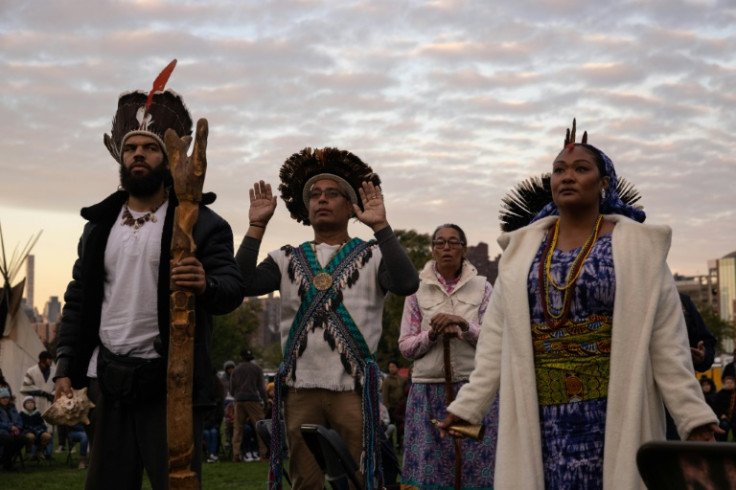Trump Vows To Bring Columbus Day Back 'From The Ashes', Rejects Biden's Move To Honor Indigenous Peoples Day

President Donald Trump announced Sunday that he will not follow the precedent set by President Joe Biden of recognizing Indigenous Peoples Day alongside Columbus Day, stating firmly that he was "bringing Columbus Day back."
In his remarks on Truth Social, Trump accused Democrats of trying to erase the legacy of Christopher Columbus, whom he described as a foundational figure in American history. He also criticized the Democrats for denigrating Columbus's role in connecting Europe to the Americas.
Columbus Day remains a federal holiday, with government offices being closed and celebrations like New York City's Columbus Day Parade still being held in many areas.
Meanwhile, Trump suggested that his administration was considering ways to elevate the day's significance further, reported Associated Press.
Presidential powers limited on federal holidays
Despite Trump's vocal support for Columbus Day, the authority to create or abolish federal holidays lies with Congress, not the president. A president can issue a one-time executive order to recognize a specific day, such as a National Day of Mourning, but cannot unilaterally declare or erase federal holidays permanently.
Biden first to mark Indigenous Peoples Day
Indigenous Peoples Day, first observed in the 1990s, gained momentum after Biden became the first U.S. president to formally recognize it in 2021.
As of last year, Indigenous Peoples Day had replaced Columbus Day in more than 200 cities and numerous states. Currently, Maine, Vermont, New Mexico, Washington, D.C., Los Angeles, and Seattle officially observe Indigenous Peoples Day on the second Monday in October -- the same day Columbus Day is recognized. Meanwhile, states such as New York, Rhode Island, and Nebraska recognize both holidays.
Earlier efforts to formally replace Columbus Day with Indigenous Peoples Day have been introduced in Congress, including a bill sponsored by Senator Martin Heinrich of New Mexico and several House representatives in fall 2023. However, neither proposal advanced to a floor vote.
Holiday caught in cultural crossfire
Columbus Day, which became a federal holiday in 1934 under President Franklin D. Roosevelt, has increasingly come under scrutiny. Critics argue that celebrating Columbus glorifies a figure associated with colonization, torture, and genocide of indigenous peoples.
Protests intensified during the 2020 Black Lives Matter movement, when several Columbus statues were vandalized.
By September 2020, at least 33 Columbus statues across the U.S. had been removed or were in the process of being taken down.
Columbus, however, has never set foot on the U.S. mainland, but he became a symbol of pride for Italian Americans as immigration grew. After the 1891 lynching of 11 Italian immigrants in New Orleans, President Benjamin Harrison proclaimed the first Columbus Day in 1892 to ease tensions.
© Copyright IBTimes 2024. All rights reserved.




















